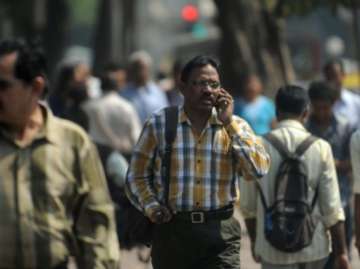TRAI cutting IUC charges to 6 paise per min a win for Reliance Jio, but will mobile bills fall?
TRAI's move towards scrapping call connect charges could result in lower mobile bills, provided operators transfer the benefit to consumers.

Telecom regulator TRAI’s decision to cut call connect rates or the Interconnect Usage Charge (IUC) by more than half effective October 1 is expected to benefit new entrant Reliance Jio. The Telecom Regulatory Authority of India on Tuesday lowered the rate that mobile companies currently charge for allowing a domestic call from a rival operator to terminate on their network. This charge, currently being levied at the rate of 14 paise a minute, has been cut to 6 paise per minute starting October 1, 2017.
In another significant move, TRAI declared scrapping the charge altogether effective January 1, 2020, while the call connect charge for landline-to-mobile, landline-to-landline etc., will remain zero.
While the decision appears to be one that would benefit Reliance Jio, which had alleged that continuation of IUC beyond 2014 had resulted in older operators benefiting to the tune of Rs 1 lakh crore, other operators aren’t too impressed with the decision.
Large incumbent operators such as Bharti Airtel and Vodafone have contended that telecom infrastructure in rural areas largely depends on revenue from incoming calls, and lowering or removal of such charge will hamper services. These operators have instead been demanding higher call connect rates in the range of 32-36 paise per minute.
Airtel has claimed that it has suffered loss of Rs 6,800 crore due to lower IUC of 14 paise set by the regulator in the last five years, a claim rival Jio dubbed as "misleading".
Back-of-the-envelope calculation suggests that TRAI’s latest decision to cut IUC to 6 paise could result in savings of over Rs 5,000 crore for Reliance Jio which uses VoLTE technology for its entire phone call service. VoLTE (Voice over Long-Term Evolution) is high-end and latest version of calls that are made on Internet-based networks.
Airtel, which has just started VoLTE-based calls and plans to expand it to across India by the end of the current fiscal, and Vodafone stand to cumulatively lose between Rs 1,200-2,000 crore, industry estimates suggest.
On the other hand, the decision could come as a boon for consumers, lowering their mobile bills if the operators pass on the benefit of reduced IUC charge to customers. However, given the stance of operators other than Jio, it could be a while before the rates drop.
Commenting on the latest decision by TRAI to further lower IUC charges, COAI Director-General Rajan Mathews termed the move as "disastrous" and said there are preliminary indications that most of its members will go to court on the issue.
Former CEO of Bharti Airtel Sanjay Kapoor said the entire pricing mechanism in India is not sustainable, given the decline in profit of telecom operators, low tariffs and high spectrum cost.
"Reduction in IUC adds to the pain. By changing technology, one can lower the cost, but the raw material spectrum is still expensive. Industry, given its current financial position, is not left with enough money to invest," Kapoor added.
Idea Cellular too has written to TRAI seeking separate calculation of call connection charges for traditional network and VoLTE (voice over 4G) network, citing huge difference on calls carried among the two networks.
The regulator, on the other hand, the telecom regulator is of the view that telecom operators must make a shift towards newer technologies given the clear differences that exist in the cost of providing same services.
"The authority is of the view that in case the present regime of cost-based domestic termination charge is continued for long, it would hamper the movement of the sector towards deployment of more efficient technologies and more innovative and customer-friendly tariff offerings and, in turn, it would be detrimental to the growth," the watchdog stated.
It felt that two years will be "appropriate" for telcos to migrate to new technologies.
Meanwhile, the telecom industry has approached the government for relief as it is reeling under debt of around Rs 4.6 lakh crore and the tariff war has eroded their earnings.